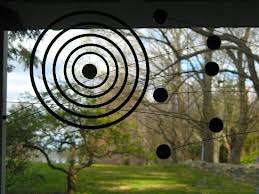|
Back
The Ebullience of Life New York
The National Opera Center, 330 Seventh Avenue
06/13/2013 -
Rick Baitz: Two Poems for Flute and Alto Flute: 1. Meditation after a Painting by Hokusai–Flight
Caleb Burhans: As Desperation Sets In
John Orfe: Leviathan
Matt Marks: Disney Remixes: I. Legs are Required; II Indescribable Feeling–I Pretended (from I[XX])
Neil Rolnick: Gardening at Gropius House (“Violin Concerto Number 2”)
Todd Reynolds (Violin), Andrew Sternman (Flute), Matt Marks (Voice)
Alarm Will Sound: Erin Lesser, Alexandra Sopp (Flutes), Christa Robinson, Kathy Halvorson (Oboes), Bill Kalinkos, Elizabeth Stipert (Clarinets/soloists) Michael Harley (Bassoon), Jason Price, Mike Gurfield (Trumpets), Michael Clayville (Trombone), Christopher Thompson (Percussion), John Orfe (Piano/soloist), Miles Brown (Bass), Alan Pierson (Conductor)

A. Pierson, N. Rolnick, T. Reynolds (© Coco T. Dog)
At times the music of Neil Rolnick summons up the performance of a tabletop magician. Mr. Rolnick rarely looks for the big thundering effects, yet the outcomes are always impressive. The art has both antics and grace but underneath is a legerdemain resulting from both personal and musical experience.
Mr. Rolnick plainly does not subscribe to the Stravinsky postulate that music can never relate to anything outside music. Many of his earlier works blatantly used both the techniques and essence of East Europe and the Middle East. His Electronic Engine used motifs from China, where he had spent much time. MONO was a never-maudlin look at his increasing deafness. His Shadow Quartet was an homage to his father in Texas, where he grew up.
Much is autobiographical, but Mr. Rolnick never wears a bleeding heart on his sleeve. In fact, while his art is serious and his craft well learned, Neil Rolnick has a kind of bubbly American optimism.
His second violin concerto, titled Gardening at Gropius House, is autobiographical in a quirky way. After his sophomore year in college, Mr. Rolnick was employed as landscape gardener for Walter Gropius, in Lincoln Massachusetts. The Bauhaus founder wanted the garden trimmed and landscaped according to his principles–and the 19-year-old refused.
“I told him he was wrong to even think of trying to tame the wild field, that it was beautiful as it was.” This, augmented by the birth of his daughter many years later, were two of the events which caused Mr. Rolnick to rethink his music, between “modernist complexity and underlying simplicity.” (George Rochberg had the opposite feeling after the death of his child, wondering whether “modernist’ music could express the sorrow he felt.)

Part of Gropius House Garden (© www.traveladviser.com)
And no, the garden has nothing literally to do with this bumptious, pumping, pulsating, delightfully rhythmical concerto played with The Alarm Will Sound ensemble. Rather, violinist Todd Reynolds, a longtime collaborator with Mr. Rolnick, played last night at its premiere with joy, a work which almost jumped or jived around with one or two phrases right from the beginning. A kind of offbeat syncopation, played with almost unceasing double-strings on Mr. Reynolds’ fiddle, with endless variations and transformations.
It was by no meant “modernist” despite a few computer sounds to enrich the fabric. Roy Harris could have written this in the 1940’s and nobody would have budged an ear. Mr. Reynolds called it “rock ‘n’ roll”, but even that was an overstatement–or perhaps a metaphor for the zest which he obviously performed it.
Mr. Rolnick not only knows Mr. Reynolds’ zesty tastes, but he knows the capabilities of The Alarm Will Sound. As Mr. Reynolds played those vaguely bluegrassy first phrases, the ensemble joined in, first with double bass, then with Christopher Thonpson’s snare drum, and finally all the soloists of this ensemble, under the baton of Alan Pierson. (Mr. Thompson played not only without stop, but ran over to marimba and vibraphone when necessary.)
The result was a work which could be perky, aggressive and nearly always pulsing with those original syncopated measures, which returned in full at the end. Mr. Rolnick here has nor produced a violin concerto that would appeal to the inner Id or the Jungian subconscious. But on the surface, he has created that rare conception, a piece of unfettered ebullience.

K. Hokusai’s Boy Viewing Mount Fuji (© Enjoy.art.com)
While Neil Rolnick’s work was the longest on the program, several soloists started with a few highly interesting pieces, with the composers all on hand. Rick Baitz composed his Meditation for the painting shown above. Andrew Sherman’s alto flute was a good representation of the Japanese shakuhachi, though Mr. Sherman’s full tones were a far cry from those “ blow-over-a-bottle” tones of the real thing. His solo melody varied form Western tunes to shakuhachi wavering, blurring and tonal ambiguity.
Caleb Burnham’s As Desperation Sets In was an inventive Baroque duo between piano and clarinet. Supposedly based on the inspiration of Mozart, it began with what could have been a Bach melody, followed by a piano ostinato which would have been a chorale. The combination of the two, varying and contrasting, inventive, fascinating. And like the last work I heard from Mr. Burnham, Requiem for General Motors, it stopped just one note short of resolving on a tonic note. (One thinks of Sheherazade stopping the story just before the end, so we want more and more.)
The final pictorial piece was perhaps a bit of self-aggrandizing by pianist John Orfe. He had performed boldly before, but in his own Leviathan, two clarinets supposedly were imitating the “fearsome powers of the beast, depicted through serpentine figures”.
That is a load of cetacean-crap. The two soloists were dazzling in their contrapuntal hijinks. But as an experienced whale-watcher, this listener knew they were hardly “whale-ish.” They could have been two drunken seagulls or a few hundred playful krill or a whole school of rambunctious fish...
Mr. Orfe, however, came to the rescue. His thunderous piano playing as loud as possible on the lowest ends of the keys, would make Moby Dick jealous. A terrific soloist, Mr. Orfe had every right to show off his skills in an evening of very skillful creations.
Harry Rolnick
|